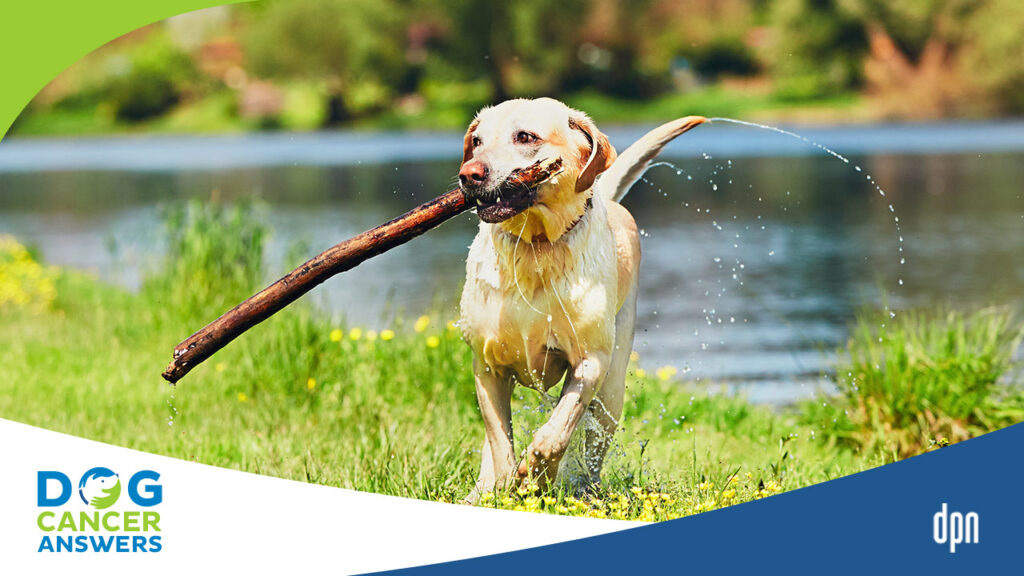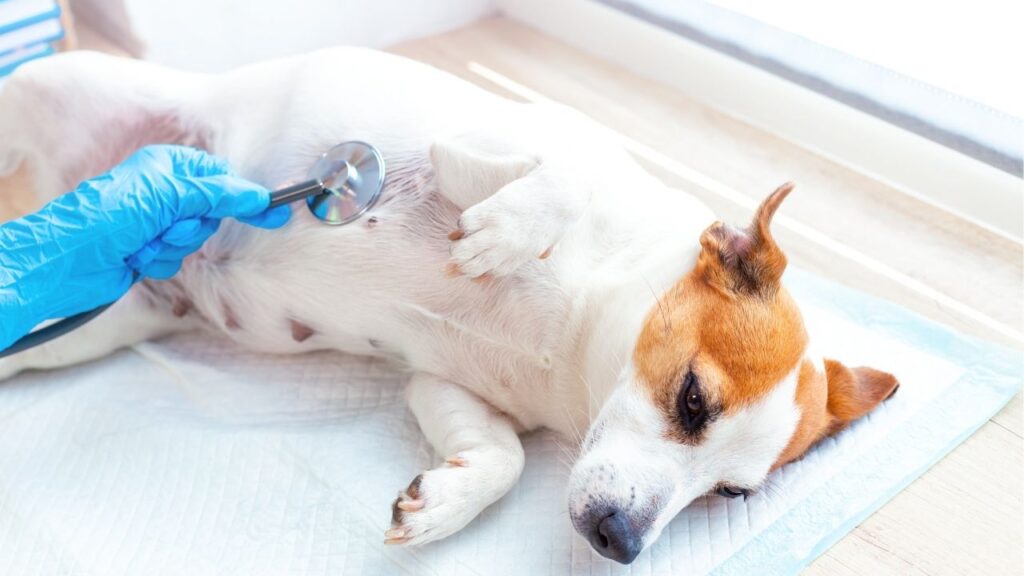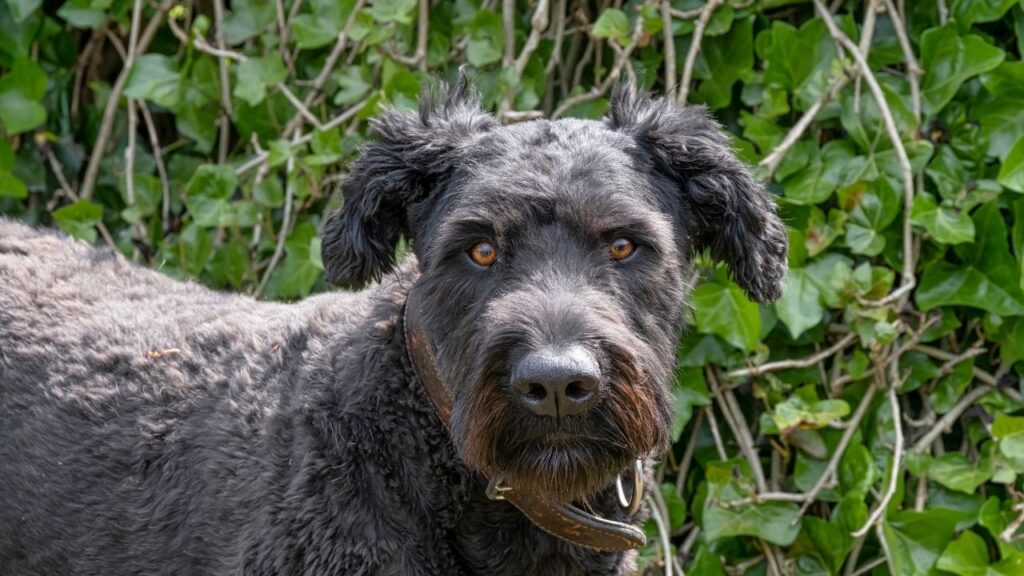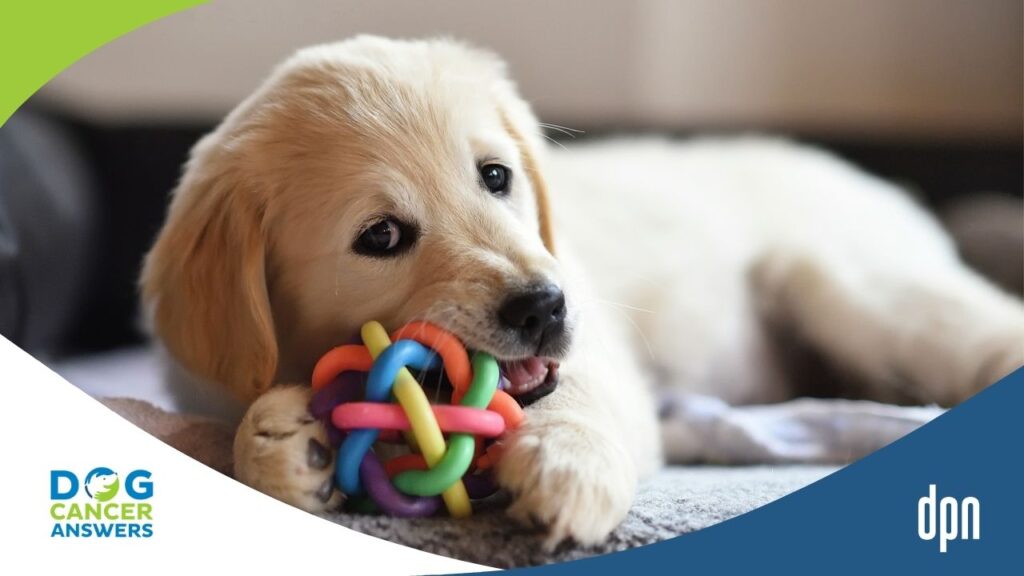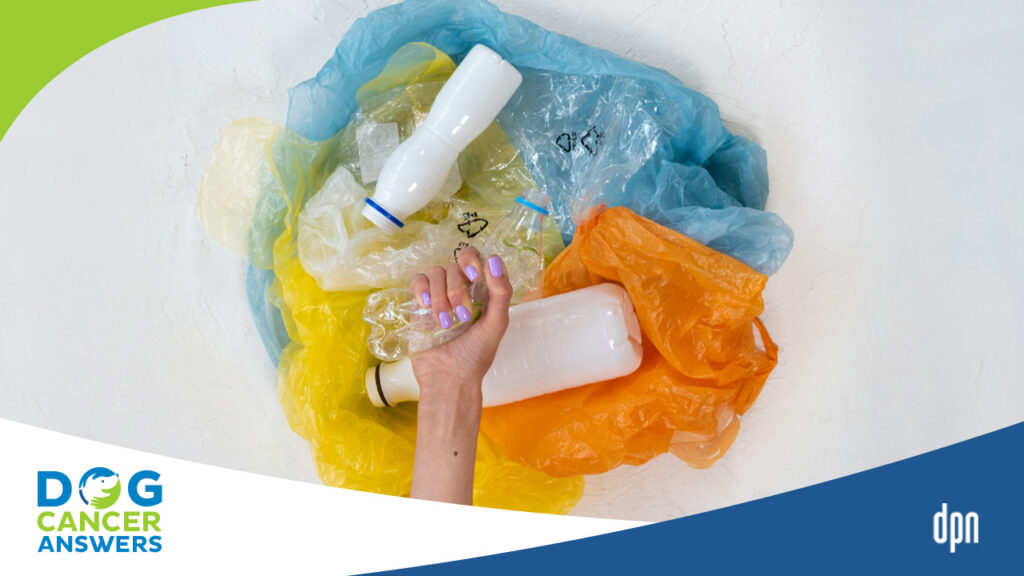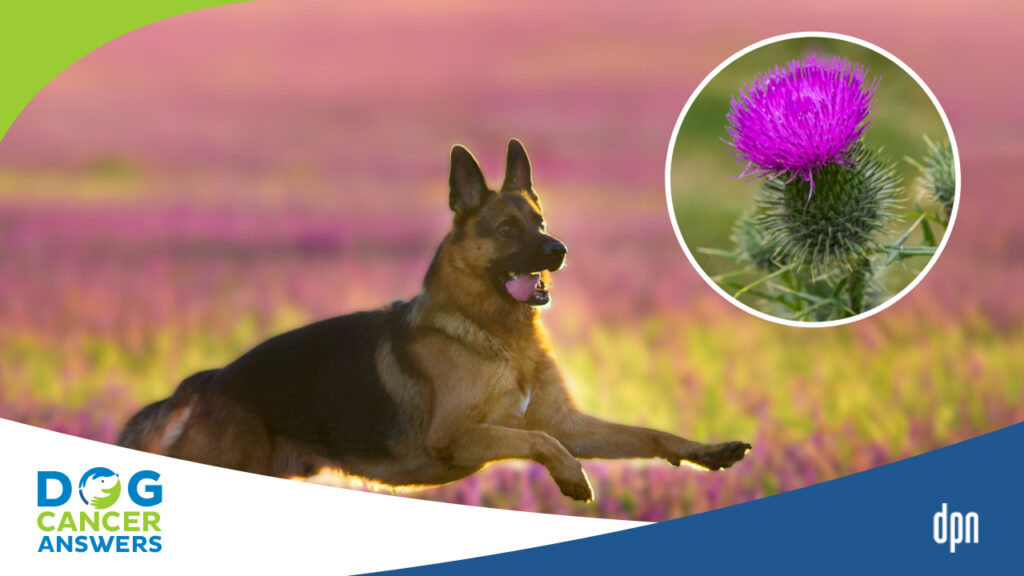>> Dr. Trina Hazzah: [00:00:03] Retained testicles have been shown to have an increased risk for two different testicular cancers, one called Sertoli cell tumors and the other, seminomas. What they also found is dogs that are over six years old with retained testicles have an even higher chance of developing cancer.
>> Announcer: [00:00:22] Welcome to Dog Cancer Answers, where we help you help your dog with cancer. Here’s your host, James Jacobson.
>> James Jacobson: [00:00:30] Welcome, friend, to another Question and Answer episode. With us is Dr. Trina Hazzah, a veterinary oncologist who practices in the Los Angeles area. Doctor, thank you so much for being with us again.
>> Dr. Trina Hazzah: [00:00:43] Thank you for having me.
>> James Jacobson: [00:00:44] Today, we have a question from Kim in Washington state.
>> Kim: [00:00:48] Hi, my name is Kim. I’m calling from Sequim in Washington state. I have a two and a half year old American field Lab. And, when I received as a puppy, we noticed later that he did not, his testicles on either side, did not descend. We waited till he was two or so. And brought him in for a surgery. The veterinarian could not locate either testicle, and made the incision as if a spay, almost, and he has healed up now, successfully, from that surgery. And I am wondering now, she does not do ultrasounds, this veterinarian, nor knows how to read them. And I’m wondering how important it is to have another test done to make sure that his testicles aren’t somewhere in his body, possibly causing a risk for future cancer.
So I wanted to know if this is a risk, if I need to pursue this further as it’s very expensive, to do ultrasound, but please let me know at your convenience. Thank you very much.
>> James Jacobson: [00:01:53] So what do you think of Kim’s question?
>> Dr. Trina Hazzah: [00:01:55] Kim, I think that’s a really great question. And it’s worrisome, right? When you expect your pup’s testicles to drop, and most drop around, you know, two months old or so, so at two years, of course, you’re a little bit worried and I think you did the perfect thing to go in and have them try to find them. Generally, when you think of, it’s called cryptorchid, which is when usually one or both testicles are retained, it only occurs in less than 3% of dogs. When you look at kind of all dogs that are cryptorchid, only 25% of them will have both testicles retained. Usually 75% will have just one. So the fact that your kid has both, it doesn’t necessarily mean that’s worse or anything.
It’s just a little bit more rare. And I think you were thoughts about doing an ultrasound, really make a lot of sense. And it’s because sometimes they can sit in what they call the inguinal ring, which is an area kind of between the abdomen and where they kind of descend and go down toward, by the scrotum. That’s kind of the path it takes. Sometimes they can get stuck in that inguinal ring area, or sometimes it can even be stuck within the abdomen.
So the only way you’re going to be able to find that out is, I think an ultrasound or in some cases, perhaps even a CT scan, but I think an ultrasound seems like a way better way to go, cost-wise certainly. And also your dog can still be awake for the ultrasound. You don’t have to knock your pet out for it.
So I think that makes much more sense. And I would also consider maybe going to a surgeon for this, only because I know your vet has already tried and you don’t want to keep opening him up to look for the testicles. I think a surgeon will have a lot more experience and may be able to try to find them a little bit quicker.
You know, your concern about cancer is certainly a valid one. Retained testicles have been shown to have an increased risk for two different testicular cancers, one called Sertoli cell tumors and the other seminomas. What they also found is dogs that are over six years old with retained testicles, have an even higher chance of developing cancer.
We know that dogs, you know, have a higher chance to develop cancer as they get older, but, in particular cryptorchid dogs over six years old have a higher chance for testicular cancer. Yours is only two, thank goodness. So I would certainly go with your gut feeling and get that ultrasound and perhaps get an opinion, a consult with a veterinary surgeon.
>> James Jacobson: [00:04:21] That’s great advice, but it makes me wonder when you were saying that it does have a higher risk for cancer, is that similar to why an older female dog may get mammary can– because basically it’s these things that are foreign objects that are not, well, let me put it this way. Why is cancer more likely if the testicles have not descended?
>> Dr. Trina Hazzah: [00:04:40] I think exactly where your gut is going, which exactly what you said is it’s they’re not supposed to be there. Right? They’re in a very warm environment, they’re not supposed to be inside the abdomen like that. And so it’s not uncommon for certain cancers to grow because it’s not, it’s an unusual place for them to live and stay there.
Right, it’s not their normal home. Mammary cancer’s a little bit different because the risk of mammary cancers really based off of when you spray your dog. Right. So they’ve looked at, if you say before the first heat, the second heat, the third heat. And then, uh, looking at the percentage of increase of risk of cancer as you wait to spay your dog with specific heats.
So it’s a little bit different because it’s more hormone induced too. Right? Cause it’s really lack of spay that does that.
>> James Jacobson: [00:05:22] Well, that’s what I was wondering, so the hormones are like, in ca-, in, inside the body as opposed to descended, where they should be. So
>> Dr. Trina Hazzah: [00:05:29] Exactly. And, my opinion on spaying and neutering might be a little different than some other veterinarians.
I think that dogs, if they can be spayed, they should be spayed before their first heat, so you don’t even worry about mammarytumors, I think. With male dogs, there are some evidence to support that you don’t have to necessarily neuter your dog, because there might be a little bit of an increased risk of say, prostate cancer with neuter dogs compared to intact dogs.
However, clearly there’s an increased risk of testicular tumor if you don’t neuter your dog, cause they’re still there. Right. But prostate tumor certainly is going to be much more aggressive type of cancer than most of the testicular tumors in general. Most of them have low chance of metastatic disease or spread of cancer.
So I, what I usually tell people, if they ask me is I say, look. If your dog, your male dog is not urinating all over the house or all over people’s property, they’re not aggressive. They’re not having some major behavioral issues. Then I don’t know if I would neuter my male dog, to be honest. And, and this might not come across great for everyone to hear, but that’s just my personal opinion, not just for prostate.
I actually, I mean, personally, I like these dogs with huge heads, and usually they, cause they’re not neutered, you know, they have these big, big heads and I don’t know, I like those, but I think you have to deal with the behavior problems if you don’t neuter, and not every unneutered dog has those issues.
Right. So you just have to kind of figure out if the behavior issues are becoming problematic or they’re urinating all over the place. My twin sister had a horrible, a South African mastiff that they did not neuter, and was very aggressive with farm animals. Like, she lived in Kenya with the dog and would go after all these animals, and eventually they were asking me and I was like, you have to neuter your dog. I mean, this is not appropriate. And so they eventually did, and all of those behaviors went away.
>> James Jacobson: [00:07:21] We’ve gone onto the lightning rail of like, veterinary discussions, where we get into like spay and neuter and if and when, and then the cancer connection.
But it’s fascinating. Dr. Trina Hazzah … Thank you so much. Kim, I hope that was helpful.
>> Dr. Trina Hazzah: [00:07:33] Thank you.
>> James Jacobson: [00:07:36] Okay, listener, there is some enlightenment about spay and neuter coming up, but first we need to take a short ad break so that we can keep making this podcast available to you.
We are back. Okay. Let’s just talk a little bit about spay and neutering in the United States. Now, obviously, no one here at Dog Podcast Network wants pet overpopulation, and the higher rates of euthanasia that result from that. That is literally the last thing that we want. However, it is really important to acknowledge that early spay and neuter has been associated with higher rates of aggressive cancers, particularly in certain breeds later in life.
Yes, spaying and neutering prevents cancers too. It eliminates cancers in the organs that are removed, obviously. And, in females it reduces the incidence of mammary cancer, but mammary cancer in dogs is a relatively slow-growing cancer, and it is not universally malignant. Bone cancer, on the other hand, is very aggressive.
The truth is that cancer is never caused by just one thing. Even with humans, nothing we do is always going to cause cancer in every case. So, as Dr. Trina suggested, maybe we should be taking another look at spay and neuter. Maybe it’s not always the best thing to do. In addition to increase risk for some aggressive cancers in some dogs, they also found that dogs who are spayed early have joint problems and hip dysplasia.
So take a look at the articles in our show notes and make sure that you discuss this with your veterinarian, and figure out what is right for your dog. The show notes can be found in your podcast app, or on our website at DogCancerAnswers.com. That’s also where you can find our entire back catalog of episodes, all of which might be relevant to you someday. Cancer is the number one killer of dogs. So please, tell five people about this show. They could subscribe now, even if their dogs are healthy, so that if they ever need us, they’ll remember where to find us. Also, please tell your veterinarian about the show.
We appreciate you getting the word out, and vets are telling us they appreciate finding out about this program from their clients. It’s a win-win
Those touchstones are here to remind me to remind you that you can always call our Listener Line at (808) 868-3200, and leave a voicemail recording. We’ll have one of our vets answer your question on a future episode of Dog Cancer Answers. The number again, (808) 868-3200. And it is available 24 hours a day, seven days a week.
We appreciate you taking the time to ask a question, especially appreciate it when someone calls in and asks a question based on their own experience. Ask yourself, what do I wish I had known earlier, and then call our Listener Line and ask about that topic. That way we will make more shows that will help other dog lovers with the information that you know will be helpful to them. Again, the number to call (808) 868-3200. And while I’m talking about things that you can do to help support other people, I want to encourage you to join our Facebook group. It’s called Dog Cancer Support. Go to the URL, DogCancerSupport.com and register also for our newsletter, which is free.
Both the Dog Cancer Support group and our newsletter are free. You can find the newsletter at DogCancerNews.com. The links are also in today’s show notes. Well, that is all I have for today. I’m James Jacobson. On behalf of all of us here at Dog Podcast Network, we wish you and your dog a very warm aloha.
>> Announcer: [00:12:06] Thank you for listening to Dog Cancer Answers. If you’d like to connect, please visit our website at DogCancerAnswers.com or call our listener line at (808) 868-3200. And here’s a friendly reminder that you probably already know: this podcast is provided for informational and educational purposes only. It’s not meant to take the place of the advice you receive from your dog’s veterinarian.
Only veterinarians who examine your dog can give you veterinary advice or diagnose your dog’s medical condition. Your reliance on the information you hear on this podcast is solely at your own risk. If your dog has a specific health problem, contact your veterinarian. Also, please keep in mind that veterinary information can change rapidly.
Therefore, some information may be out of date. Dog Cancer Answers is a presentation of Maui Media in association with Dog Podcast Network.




